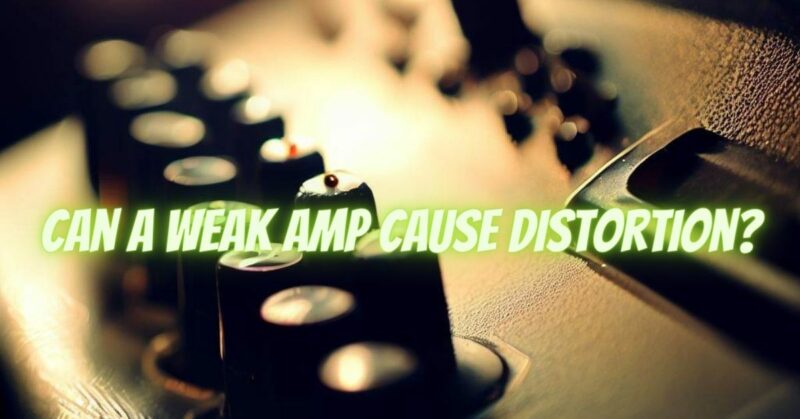When it comes to achieving distortion in guitar playing, there are various factors at play. One commonly debated question is whether a weak amplifier can cause distortion. In this article, we will explore the relationship between amplifier power and distortion, shedding light on whether a lower-powered amp can deliver that sought-after crunch.
- Power and Headroom:
Amplifier power and headroom play crucial roles in the distortion equation. Headroom refers to the amount of power an amplifier has available beyond its clean or undistorted output. Higher-powered amps generally have more headroom, allowing for cleaner and louder sound reproduction before distortion occurs.
- Clipping and Distortion:
Distortion is often associated with the clipping of an audio signal. Clipping happens when an amplifier is pushed beyond its maximum output capacity, resulting in a flattened waveform that introduces harmonic content. This distortion is often desirable, as it imparts character and grit to the guitar tone.
- Relationship to Weak Amplifiers:
A weak or low-powered amplifier can indeed contribute to the creation of distortion. Due to their limited power and headroom, these amplifiers may clip more easily when pushed to higher volume levels. This inherent clipping can result in a natural distortion effect. While weaker amps may not produce the same level of distortion as higher-powered amps, they can still provide a unique and usable amount of crunch.
- Speaker and Cabinet Considerations:
It’s important to note that the speaker and cabinet used in conjunction with a weak amp can also impact the level of distortion achieved. Speakers have their own power handling capabilities, and when paired with a low-powered amp, they may reach their limits more quickly, leading to speaker breakup and distortion. The size and construction of the cabinet can also affect the resonant properties and contribute to the overall distortion character.
- Using Pedals for Added Distortion:
If you’re using a weak amplifier and desire more pronounced distortion, employing distortion pedals can be an effective solution. Distortion pedals are specifically designed to add gain and create distortion effects. By using a pedal in conjunction with a low-powered amp, you can achieve higher levels of distortion and shape your tone to your liking.
Conclusion:
In summary, a weak or low-powered amplifier can indeed produce distortion, albeit at lower levels compared to higher-powered amps. The limited headroom of these amps can cause natural clipping, resulting in a unique and often desirable crunch. When considering a weak amplifier, keep in mind the power handling capabilities of the speaker and cabinet to maximize the potential for distortion. Additionally, incorporating distortion pedals into your setup can further enhance and shape the distortion effects to your preferences. Embrace the distinctive qualities of a weaker amp, experiment with different settings and combinations, and unleash your creativity with the intriguing world of distortion.


